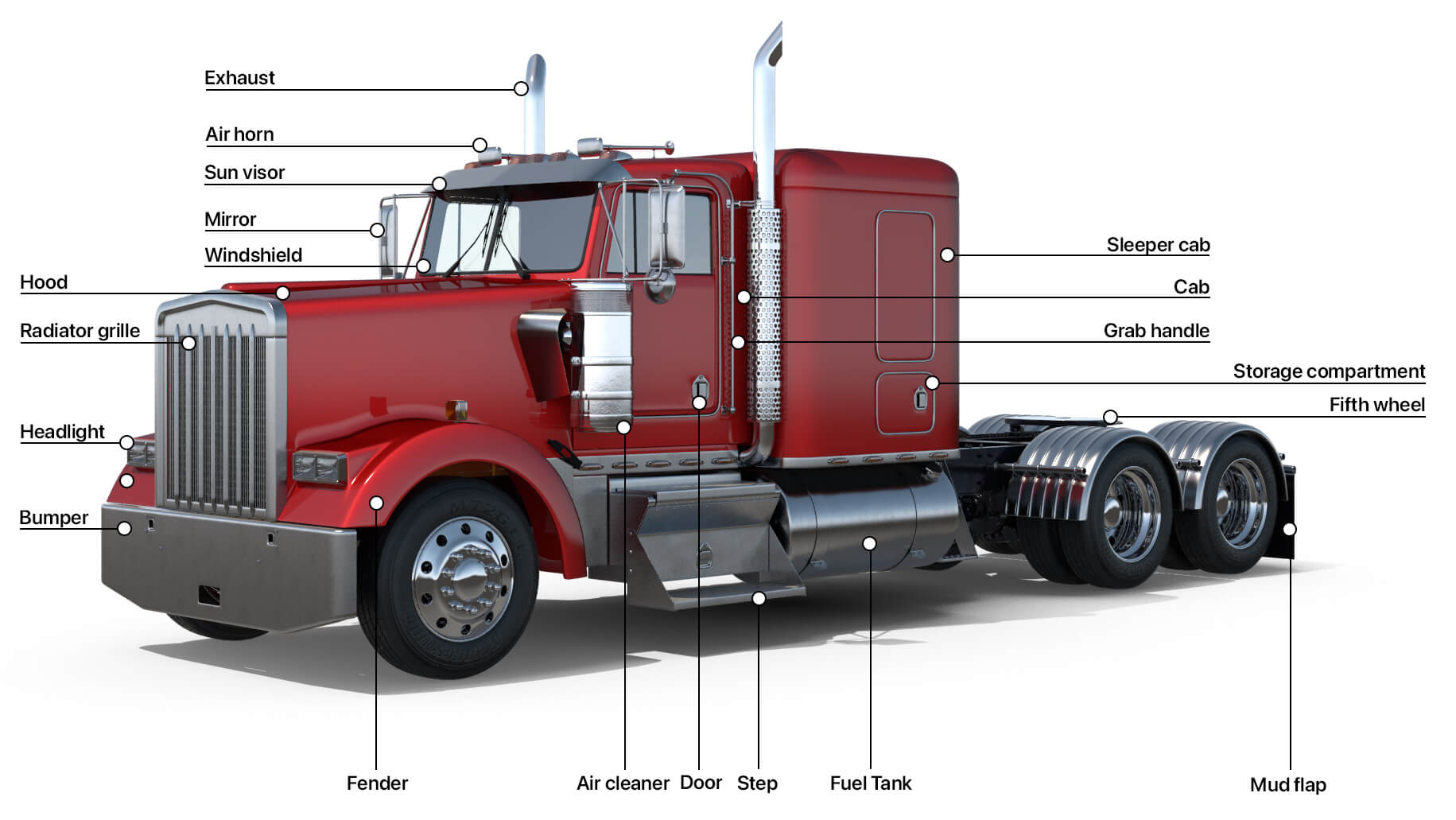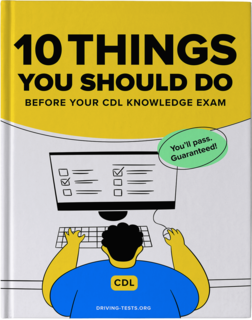What's a Commercial Driver's License?
- CDL License
- A commercial driver’s license (CDL) is a driver’s license that authorizes a person to operate a class of commercial motor vehicles (CMVs). Federal standards define three classes of CDLs, each for a corresponding group of motor vehicles:
- Class A (Combination Vehicles): Any combination of vehicles with a gross combination weight rating (GCWR) of at least 26,001 pounds provided the gross vehicle weight rating (GVWR) of the vehicle(s) being towed exceeds 10,000 pounds. Examples include tractor-trailers.
- Class B (Heavy Straight Vehicles): Any single vehicle with a GVWR of at least 26,001 pounds, or any such vehicle towing another vehicle whose GVWR does not exceed 10,000 pounds. Examples include coach buses and transit buses.
- Class C (Small Vehicles): Any single vehicle or combination of vehicles not included in Class A or Class B that is used to transport sixteen or more passengers including the driver or to transport hazardous materials. (For this purpose, federal regulations define a hazardous material as a substance that has been designated by the US Secretary of Transportation as a material whose commercial transportation may pose an unreasonable risk to health and safety or property.) Examples include sixteen-passenger vans.
How to Get One?
- Obtaining a CDL
- You must be at least 18 years old.
- Have a valid driver's license (or learner permit) for the state in which you are applying.
- Pass the CDL written knowledge test.
- Complete your medical exam and get your physical.
- Get fingerprinted by law enforcement with ID verification, or go to an authorized third-party vendor that provides computerized fingerprinting services.
- Go to a DMV office and pay the required fee to take the skills test
What Are All the Truck Parts Called?

What To Expect from the Process?
- Study your state's CDL handbook. Sometimes it's hard to find the official source, so we've put together a list of the most recent official CDL handbooks for every U.S. state. If you prefer a hard copy, you should be able to pick one up at your local DMV office.
- Take a lot of practice tests. Taking practice tests that simulate your state's actual knowledge test will give you confidence and prepare you for the actual thing. Our CDL test questions are based on your state's official manual, so you'll know what to expect. These tests are valid for both commercial driver license and CDL permit (CLP).
- Watch CDL videos. YouTube is a fantastic resource, especially for pre-trip inspection.
Applying
A Commercial Driver's License is required to drive commercial vehicles such as tractor trailers, semi-trucks, dump trucks, and passenger buses (including school buses). The minimum age to apply for a CDL is typically 21. To become a truck driver, you can apply for a CDL at a local DMV office. Learn more about the three classes of CDLs that determine the kinds of commercial motor vehicles you’re permitted to drive: Class A, Class B, and Class C. There are strict federal guidelines for obtaining a CDL, and each state has its own requirements that need to be also met. You must pass both a written knowledge exam and a driving skills test, which are designed by your state.
The Written Knowledge Test
Your CDL test is the first step to a professional truck driving career in a trucking company. After you've studied your state's CDL handbook, the best thing you can do is either sign up for a costly CDL training program or take a free CDL practice test that simulates your state's actual knowledge test. Driving-Tests.org provides a general knowledge test, as well as practice tests for specific commercial vehicle endorsements, such as air brakes test, school bus, and hazardous material (HazMat endorsement). There's also a practice test for pre-trip inspection - it will come in handy before your CDL road test. These tests are valid for both commercial driver license and CDL permit (CLP).
Choose your state from the drop-down menu above, and you’ll be provided with a test for all CDL license types that is closely based on your state’s manual, state and federal laws, and practice questions provided by the state if available.
How Is Our Program Structured?
Think of this as your own CDL study guide for each endorsement. Every practice test has multiple-choice questions in the same format you’ll find on your state’s CDL test. These questions are phrased like the ones on your state’s official knowledge test. Most of the questions come with a hint to help you choose the right answer. Each correct answer comes with an explanation that has been carefully written to help you become more familiar with the topic of the question. We want you to be able to answer questions on those topics correctly even if they are worded a bit differently. Please read each explanation; it is based on your state’s CDL manual and DMV/DOT website.
Which Topics Are Covered?
This practice exam covers a wide range of topics that you’ll need to know about to pass your CDL knowledge test and enter the trucking industry. These topics include aggressive drivers, braking techniques, cargo safety, distracted drivers, drunk driving laws, emergency preparedness, road and weather conditions, and safe backing. No, we certainly did not forget about air brakes, combination vehicles, or hazardous materials! These topics are complex enough to deserve separate treatment. Just as states typically require you to pass specialized knowledge tests on those topics, we offer our own specialized practice tests on air brakes, combination vehicles, and hazardous materials. By studying our CDL practice tests, you'll be on your way to obtaining your Class A CDL, Class B CDL, or Class C CDL license. Remember that you'll also need to fill out the Medical History portion of the MER form (MCSA-5875) and also obtain a copy of the Medical Examiner Certificate form (MCSA-5876).
How Many Times Should I Complete the Program?
We recommend that you keep taking the test until you become fully comfortable with the subject matter and receive a score high enough to boost your confidence about your upcoming CDL exam. A high score will bring you closer to passing your CDL knowledge test, so practice as many times as you’d like. There are no fees, and you won’t even have to register. Good luck now and on your CDL test. Drive safely!


